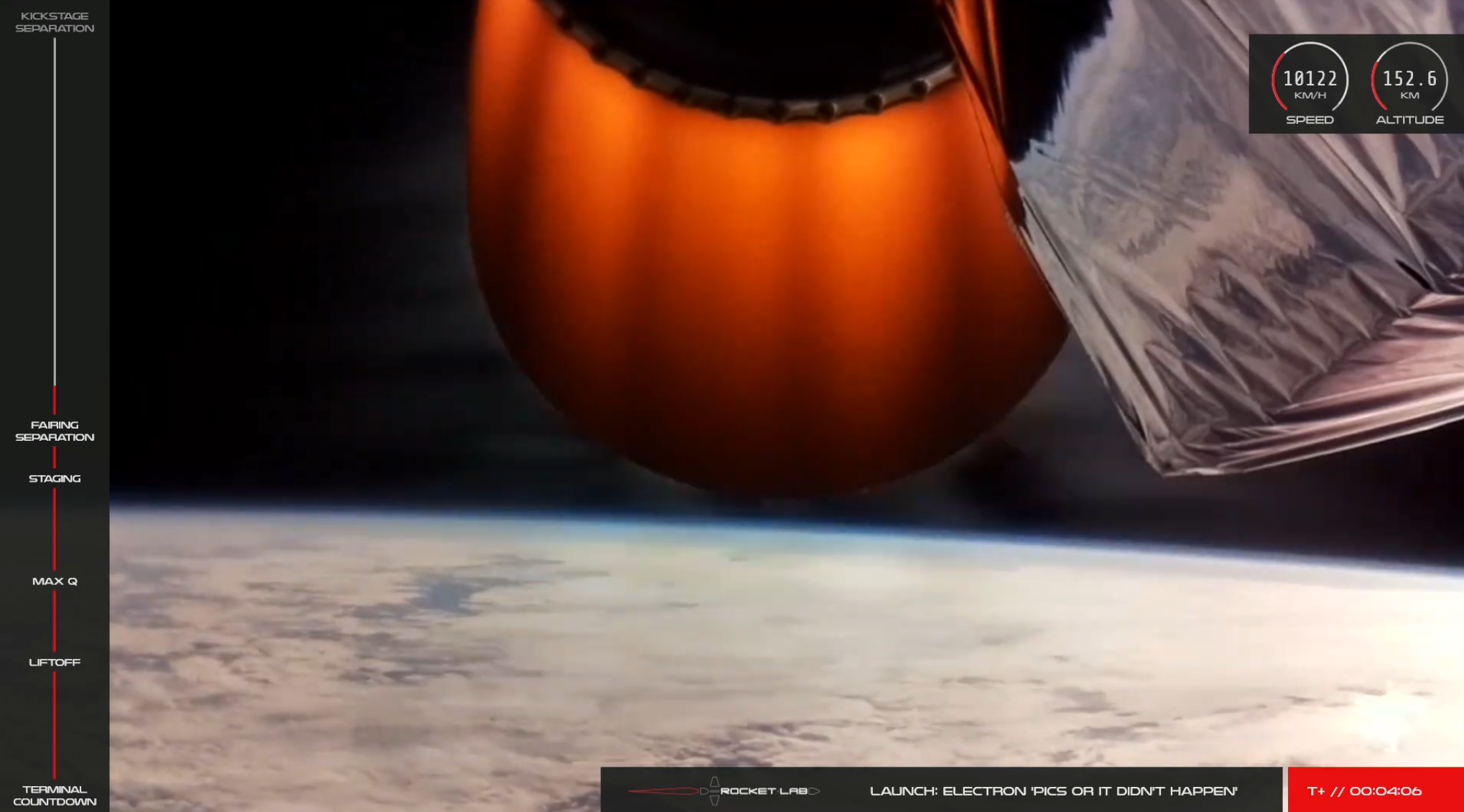
Rocket Lab is investigating the failure of an Electron rocket that was lost about 4 min. after liftoff, dooming a rideshare mission to put seven small satellites into orbit.
Flying for the 13th time, the two-stage, liquid-fueled Electron—developed, owned and operated by privately owned Rocket Lab—lifted off at 5:19 p.m. EDT on July 4 from the company’s launch complex on New Zealand’s Mahia Peninsula.
The booster’s first stage separated as planned 2 min. 38 sec. after liftoff and the second stage ignited for what was intended to be a 6-min. 21 sec. burn. However, about 4 min. into the burn, the booster “experienced an issue that caused the complete loss of the vehicle and unfortunately the payloads,” founder and CEO Peter Beck said in a video posted on Twitter.
“Today was a pretty tough day,” Beck said. “To our customers, we are deeply sorry for the loss of those payloads … We will leave no stone unturned to figure out exactly what happened so that we can learn from it and get back to the pad safely.”
The rocket was carrying seven satellites on a rideshare mission for Canon, Planet and a UK-based startup called In-Space Missions. The largest of the satellites was Canon’s 147-lb. CE-SAT-1B Earth-imaging spacecraft, a follow-on to a prototype launched in October 2017.
CE-SAT-IB was intended to demonstrate Canon Electronics’s Earth-imaging technology with high-resolution and wide-angle cameras, as well as test the microsatellite for mass production.
“We are of course disappointed, while at the same time always aware that launch failures are part of the business of space,” said Seattle-based Spaceflight, which brokered the ride for Canon. “We will work closely with Rocket Lab and our customer Canon Electronics … to figure out the next steps. We have faith in all our launch vehicles, including Electron, and look forward to many more successful launches with them.”
Also lost in the accident were five of Planet’s latest-generation Dove imaging satellites, known as SuperDove. The Flock 4e birds were equipped with new sensors to enable higher image quality with sharper, more vibrant colors and accurate surface reflectance data for advanced algorithms and time-series analysis.
Making its space debut was In-Space Missions, flying what it called the Faraday-1, a six-unit cubesat intended to demonstrate a reprogrammable, software-defined radio and other technologies.
“The In-Space team is absolutely gutted by this news,” the company wrote on Twitter. “Two years of hard work from an incredibly committed group of brilliant engineers up in smoke. It really was a very cool little spacecraft.”
“We’re setting our sights on the next phase of the Faraday programme,” In-Space Missions added July 5. “We’ll also be working hard with our customers onboard our satellite, to ensure their planned missions successfully reach orbit asap.”
Electron entered commercial service in November 2018 following a pair of test flights, the first of which ended before the rocket reached orbit due to a problem with ground tracking equipment.
Prior to the July 4 mission, the rocket had successfully reached orbit 11 times, deploying 53 satellites.
After standing down due to travel and work restrictions stemming from the COVID-19 pandemic, Rocket Lab was on track to resume a monthly launch cadence, as well as begin flying from a second launch pad in New Zealand and a new complex on Wallops Island, Virginia, this year.
Based in Long Beach, California, Rocket Lab currently has more than eight Electron vehicles in production, the company noted in a statement, enabling it to be “ready for a rapid return to flight as soon as investigations are complete and any required corrective actions are in place.”




